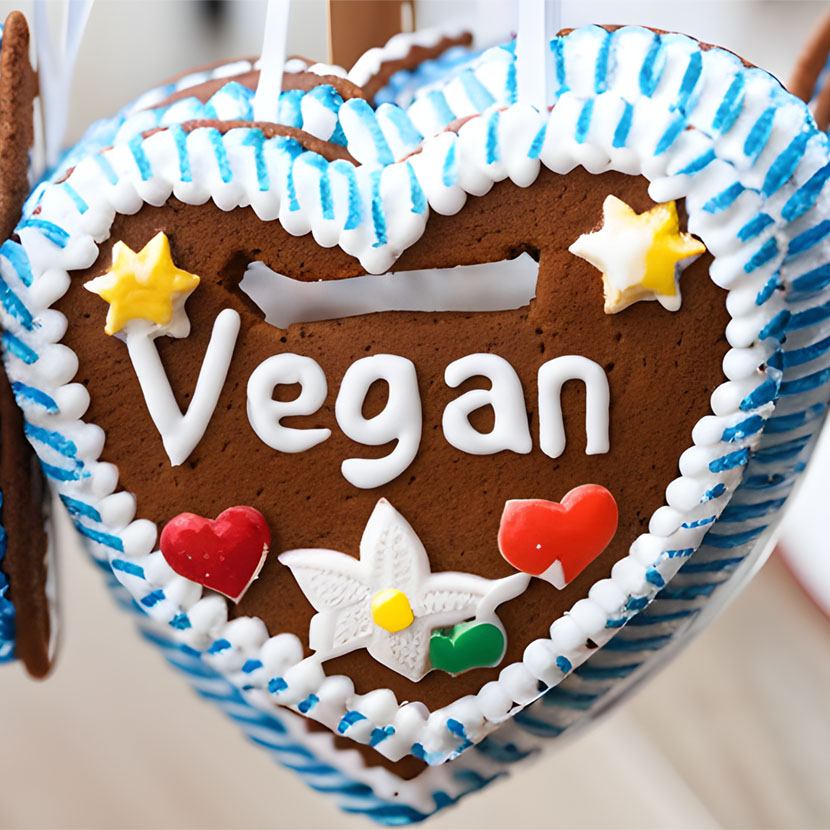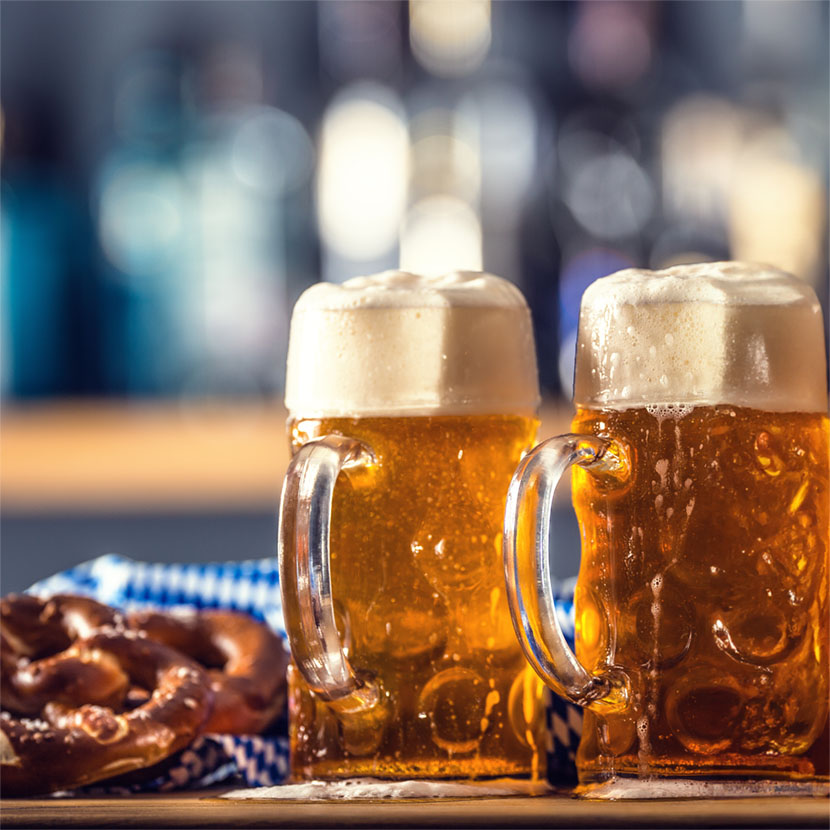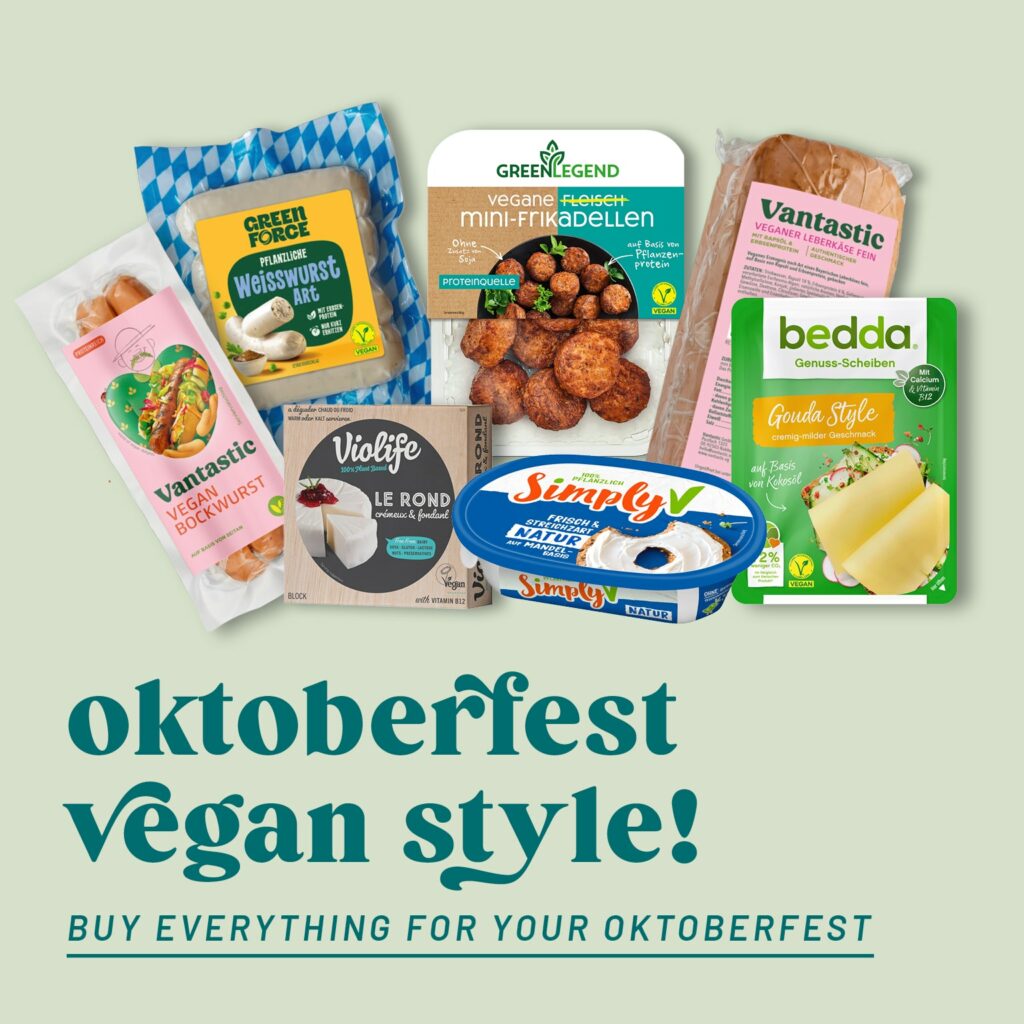V-STORY
When tradition meets modernity – going vegan at the Oktoberfest


World famous and yet brand new – the Wies’n
From 16 September, Munich will once again be in a state of emergency for 18 days. This is the time of year when the ‘Wies’n’, as the Bavarians affectionately call the festival on the Theresienwiese, opens its tents.
This world-famous Oktoberfest that takes place in September was first held in 1810 to celebrate the wedding of Crown Prince Ludwig of Bavaria and Princess Therese and has been celebrated annually ever since. It is known for its large beer selection, traditional Bavarian music, fairground rides and, of course, its rich cuisine, which consists mainly of meat and dairy products. But in recent years, the festival has begun to recognise the changes in many people’s eating habits and the growing interest in a vegan lifestyle. Let’s focus on the vegan aspects of the Oktoberfest today and explore how tradition and modernity collide at this historic festival.



Charmingly open to new things

Vegan diets are often seen as one of the most effective ways to reduce the environmental impact caused by food production. But having a plant-based diet is also favourable for health reasons. According to the Vegan Society, the number of vegans in Germany increased by 150% between 2016 and 2021. As more and more people adopt a vegan lifestyle, the Oktoberfest has responded by expanding its range of vegan options.
A large part of the Oktoberfest’s charm lies in its ability to combine tradition with innovation. At the Wies’n it becomes clear how cosmopolitan Munich is or can be and that it is also open to new ideas. The festival itself has developed into a huge international event – the same goes for the food at the Wies’n. While locals and tourists, young and old, all equally dressed in dirndls and lederhosen, still partly eat the classic dishes such as pork knuckle, white sausage and pretzels, there are also an increasing number of vegan alternatives. And these are proving to be extremely popular.
Just try it: white sausage alternative & jackfruit ‘Hax’n’ (pork knuckle)
For example, some tents have started offering vegan versions of traditional dishes. Vegan white sausages, made with seitan and spices that mimic the distinctive taste of the original version, have shown to be particularly popular. Some tents even offer vegan ‘pork knuckle’ made from jackfruit, a fruit known for its meat-like texture and taste.
Even the traditional pretzels are now offered in plant-based versions made without butter and eggs. And of course, there are many dishes that are traditionally vegan from the start, such as potato salad and sauerkraut. Some tents have also introduced new creative plant-based dishes, such as vegan currywurst and vegan cheese spaetzle (traditional noodles), which are made from plant-based alternatives to meat and cheese. These dishes are very popular with young Wies’n visitors.
For those who want to conjure up a vegan Oktoberfest feeling at home, try our vegan Wies’n bowl with mushrooms and sliced dumplings or a vegan Oktoberfest snack.


Naturally vegan beer

But the Oktoberfest is not just a celebration of food – it is, of course, also a celebration of beer. Fortunately, the vast majority of beers brewed in Germany are vegan, as they are mostly made according to the Purity Law of 1516, which only allows water, barley and hops as ingredients. However, it is still advisable to check other beers, as some breweries may use animal products in the clarification process. At the Wies’n, however, you can rest assured that the beer in the well-known tents is pure.
In terms of atmosphere, the Oktoberfest has opened its doors wide to vegans and anyone interested in a more sustainable lifestyle. Many tents make it clear that they offer vegan options, and there are even events and activities aimed specifically at the vegan community: vegan cooking demonstrations, special vegan or veggie menus in some tents and events focused on promoting sustainable agriculture and a vegan lifestyle are now already an integral part of the programme. For detailed information, we recommend you visit the official Oktoberfest website, where there is a dedicated section for vegetarian and vegan guests.
Still having conversations in a social setting
Yes, many people rightly still associate the Oktoberfest with meat and beer, but the reality is that the festival has changed and will continue to change. It has begun to retain an appreciation for its customs while meeting the needs of our changing society. The Wies’n of today beautifully demonstrates that tradition and modernity can go hand in hand, even on a plate.
It is only the beginning. Vegan ideas have reached the Oktoberfest and show no signs of being just a short-lived trend. With a mix of vegan adaptations of Bavarian favourites and innovative new creations, the Oktoberfest has proven that it is able to adapt and continue to create a joyful, welcoming flair for all, regardless of their diet. What is clear is that while honouring its roots, the Oktoberfest is evolving to reflect the changes in the world, as it always has. Much has already happened since the time of Crown Prince Ludwig of Bavaria and his bride Therese.
The festival on the Theresienwiese (Theresia’s meadows) itself is an international meeting place where people come together. The social aspect is the perfect opportunity to talk to people from all over the world. Listening to oompah tent music with a good pint of beer, you quickly get talking; maybe even about sustainability and animal welfare or simply about that delicious white sausage … which – “I wouldn’t have noticed” – was also vegan.




